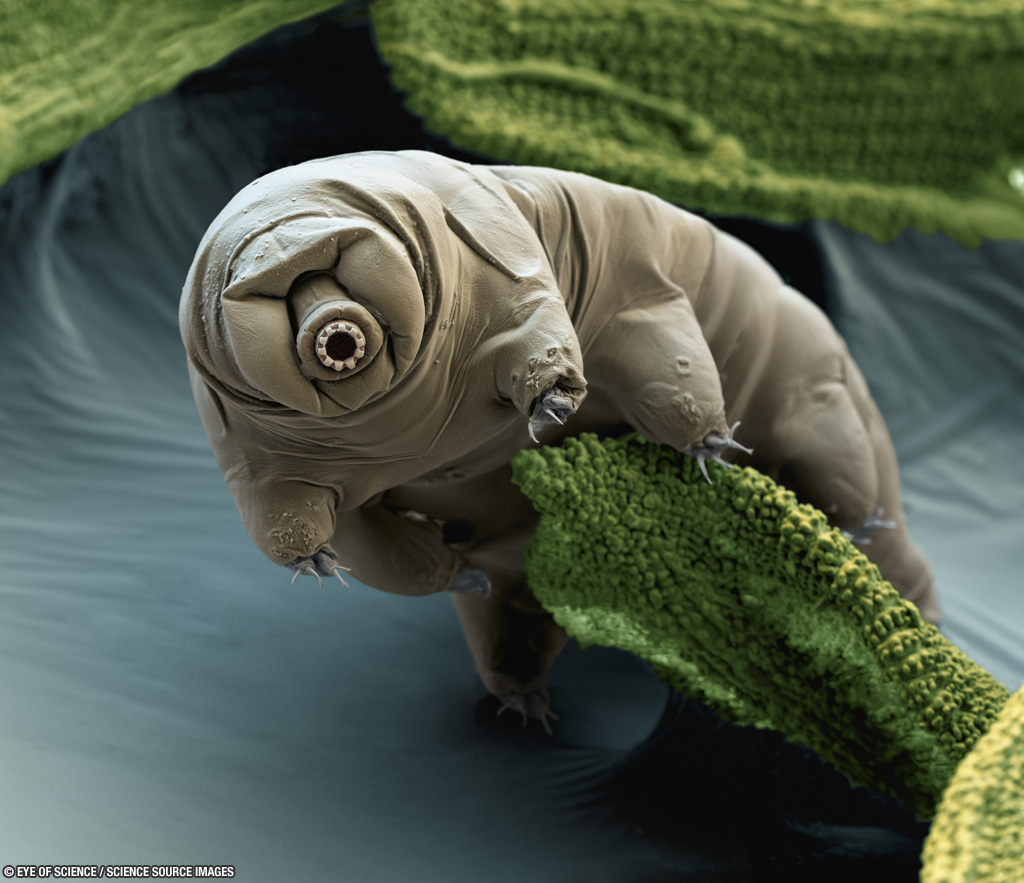Skwim
Veteran Member
forgive my rhetoric
You're forgiven.

Now go and sin no more.
.
Welcome to Religious Forums, a friendly forum to discuss all religions in a friendly surrounding.
Your voice is missing! You will need to register to get access to the following site features:We hope to see you as a part of our community soon!
forgive my rhetoric

It looks like a vacuum cleaner bag got sick of eating dirt and decided to live on it's own.Tardigrads are the "highest" evolved animal. It can be without water for 10 years. Can survive in space. One of the only species that have gone through several mass extinction events in Earth's history. They're the ones with the best track record.

Cute little thingy, isn't it.
Sounds about right.It looks like a vacuum cleaner bag got sick of eating dirt and decided to live on it's own.
Question for evolutionists, and creationists can enter the discussion as well, since this DIR is about evolution & creationism.
Is the cockroach a 'highly evolved' creature? Is it 'more evolved', than say, humans? Why or why not?
In science & engineering, one often encounters limits.The ones who agree that it's highly evolved are making a big mistake as they make limits
for evolution and contradicting themselves.
Many organisms were fit to their environment and evolved to other kind otherwise why the fish
moved to the land and evolved to other forms of creatures.
I'm not sure I understand what you're saying. Are you saying that there are less genetic changes or diversity when an organism is more adapted to an environment? I'm probably misunderstanding you. The coffee is still making it's way to my brain here.Regarding evolution, as an organism evolves to adapt to its environment,
the rate of change of allele frequency approaches the limit of zero.
In science & engineering, one often encounters limits.
Regarding evolution, as an organism evolves to adapt to its environment,
the rate of change of allele frequency approaches the limit of zero.
The existence of such a limit isn't a problem.
The rate of genetic changes approaches zero.I'm not sure I understand what you're saying. Are you saying that there are less genetic changes or diversity when an organism is more adapted to an environment?
I did know that.Just to add an FYI, you might know this already, but for anyone who doesn't. Even in species that have reached a maximum in a specific environment (like the shark), the genetic diversity is actually very high. The genes that make sharks to be "sharks" stay the same, but there's a lot of other genes that still changes and apparently, in such cases (even like human) the diversity is even greater than for a species under selective pressure.
Viewing evolution as a stochastic system, it's reasonable to assume that physical laws impose limits.No limits for evolution, dude
I expect humans to change.it's an ongoing process, do you expect humans of today will be the same if they were
able to live some millions of years a head.
When? When they're reached a maximum?The rate of genetic changes approaches zero.
I don't view it in terms of maximum of something.When? When they're reached a maximum?
No.Do you have a link to some research showing this?
The allele frequency will only stabilize for the genes responsible for the beneficial traits, not for traits that are discardable.I don't view it in terms of maximum of something.
It's about adapting to the point that allele frequencies are stable, ie, optimized for the organism in its environment.
Fair enough. I take that as a valid answer and reason as any.No.
it's all my speculation & opining.
Such complexity is why I stress that change approaches zero.The allele frequency will only stabilize for the genes responsible for the beneficial traits, not for traits that are discardable.
It's like eye color in humans. There's at least 3 different genes responsible for eye colors, and there's more than 120 alleles in one of them. Traits where you don't have selective pressure, you get a higher allele frequency, if I recall my anthropology right. You increase the genetic pool, so to speak, in the areas where it doesn't matter.
Also, what I mean with "maximized" is the same as "optimized for the organism in its environment." It's important to remember though that not all traits are necessary or important for the survival of a species.
Sure. I agree that the phenotype changes approaches zero, but the genotype doesn't. I'm quite sure about this from my studies, but I'm not going to force you into my opinions. I respect you and your opinions waaay too much to do that.Such complexity is why I stress that change approaches zero.
(I take into account that there is much I don't know about this field I make guesses about.)
Keep opining.....it illuminates things for me.Sure. I agree that the phenotype changes approaches zero, but the genotype doesn't. I'm quite sure about this from my studies, but I'm not going to force you into my opinions. I respect you and your opinions waaay too much to do that.
Question for evolutionists, and creationists can enter the discussion as well, since this DIR is about evolution & creationism.
Is the cockroach a 'highly evolved' creature? Is it 'more evolved', than say, humans? Why or why not?
Then he meant them to flock to the apartments of me worst tenants!The cockroach is exactly what God intended it to be when He created it. If He meant for it to change or evolve then it has, if not then it has not. I hope that helps.
